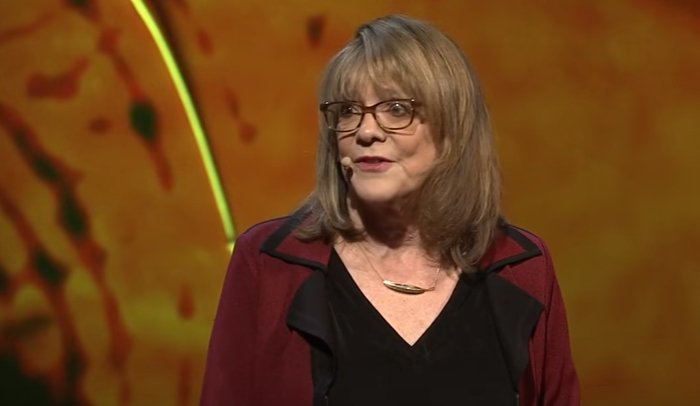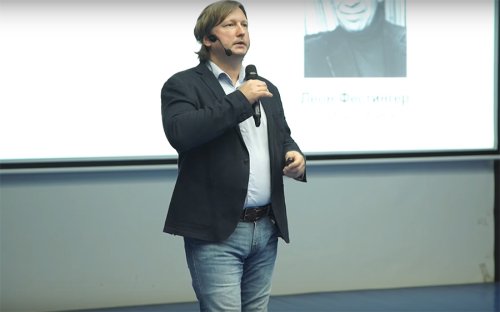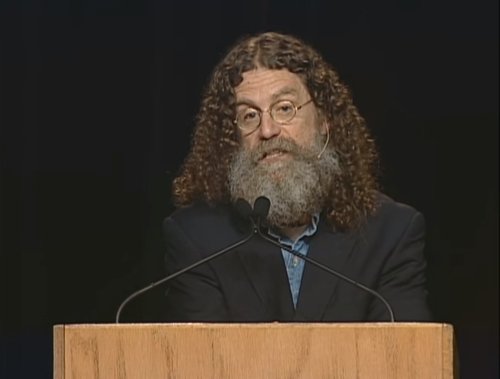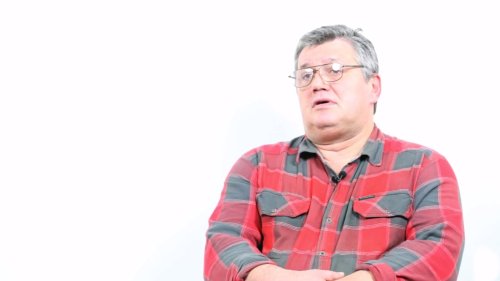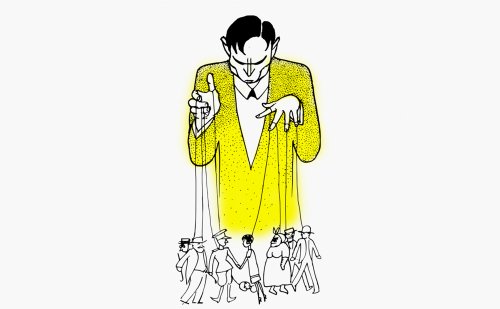Sceptic interviewed a former lecturer at an Orthodox seminary who worked there for four and a half years. The goal was to understand what a modern Orthodox seminary in Russia is like, how it affects mental health, and how being within its walls can lead to atheism.
Sceptic:
— How did you end up working at a seminary?
Alexander:
— In 2013, I graduated from the Orthodox Institute as a specialist in religious studies. After that, I worked at a factory, but I started to question why I was doing that. I thought, "I have a degree, so why not try working in my field?" So, in 2015, I went to teach at a seminary in the Far East.
In reality, they lacked specialists there, so the academy would send students who had completed their studies but hadn’t yet received their master’s degrees.
At the seminary, I didn’t just teach secular subjects like language, IT, or basic safety education (BSE); I taught purely theological disciplines: new religious movements (what used to be called sect studies) and comparative theology.
When I was still a believer, I had tried several times to enroll in a seminary, but for various reasons, it didn’t work out. That’s when I became disillusioned with seminaries as educational institutions and realized they weren’t for me. I decided instead to enroll in a secular university in a similar field.
So, I started at the academy as an Orthodox believer and graduated as an agnostic.
At that time, I had, so to speak, a question for God: does He exist or not? I decided to try to find the answer through the experience of being in a place like a seminary. And, of course, I also wanted to work in my field.
Sceptic:
— Did God answer you?
Alexander:
— Yes. I must say that the experience provided by the seminary greatly extinguishes the fire of that idealistic faith with which young people arrive. Many, after five years in the seminary, reconsidered their desire to become priests. There were always some who left after just a year of study, saying, “No, this isn’t for me.” Many became disillusioned.
I observed a lot of people—teachers, students, and church authorities. Additionally, at the seminary, I watched many educational videos. Alexander Nevzorov also played a significant role in shaping my thoughts. At the same time, I learned a lot from the website antropogenez.ru.
There came a moment when I realized I no longer believed. A vacuum formed in my consciousness. One day, I accidentally came across a program featuring a debate between a priest and a scientist about the origins of humanity. After that, I began to research the topic independently and discovered a lot of new things for myself.
Sceptic:
— What did teaching in such a specific place give you?
Alexander:
— Personally, the teaching experience itself was valuable. Although many say that secular universities are very different from seminaries. So, I can say that the main thing this experience gave me was transitioning from agnosticism to atheism.
But to say it was boring would be completely untrue. At first, there was a funny story where I slipped up, and my non-Orthodox views came to light. My friends and I used to attend Orthodox youth meetings, and at one of them, there were petition sheets asking for the creation of an Orthodox gymnasium. At that moment, I was dealing with work issues and felt a strong urge to do something mischievous. So, I did: I took a sheet, wrote “I’m against,” signed it as “Vladimir Gundyaev,” and added the phone number “666.” But there were cameras. Apparently, someone was upset by my prank and decided to figure out who did it. Afterward, a complaint was written about me to the metropolitan.
I had a conversation with the same metropolitan and the administration. They directly asked me if I believed in God. I said yes. I lied because it was already the middle of the year, and it was very inconvenient to leave the academic process, not to mention that I didn’t particularly want to leave in November.
Later, a more dramatic story occurred, which ultimately led to my departure. In short: I was accused of leaking information about how our first prorector had really died—it was a suicide.
Someone wrote to the Telegram channel “Tserkvach” (which publishes various insider information about church life) explaining why he had actually done it. The reasons included family drama, pressure from the administration, and his overall psychological state. But primarily, it was due to family issues. I was summoned and told they wanted to terminate my contract. In other words, they politely asked me to leave the seminary.
At first, I didn’t even realize the reason. I thought it might be related to my atheism. I had shared my views on life with a few people, so I assumed that sooner or later, I would be asked to leave anyway. But I was wrong. It turned out that the leak was attributed to me.
That was the end of my seminary story. But while I was there, it was very interesting to observe and see church life and religiosity from a different perspective.
Seminary students are mostly young people. I understood them well because I had once been such an idealist myself. Their hopes and problems developed before my eyes. The main thing is that it was impossible to convince them of anything. Their desire to believe was so strong that any arguments were futile. I tried to explain Darwin’s theory to them, but their faith was so strong that it had no effect. Although, to be honest, I didn’t expect much.
People in the seminary were diverse. Some, so to speak, came “off the street.” But mostly, people ended up there after being recommended by a priest and later approved by a bishop.
In my experience, around 80% or more were highly religiously motivated. Occasionally, there were those who just needed a place to stay, as the seminary provided free food and housing... but such cases were very rare. And when problems arose (usually with alcohol), they were quickly removed.
When I was leaving, one of the students said to me, “Alexander Grigorievich, I’m amazed at how long you lasted here with your views.” We had a trusting relationship.
Being in an environment that is essentially foreign to you is, on the one hand, interesting, but on the other, quite difficult. At one point, I even began to fear that I might develop mental health issues. I asked a local friend of mine, who worked as a psychiatrist, if he noticed any unhealthy changes in me. But he assured me that everything was fine.
There were no mental health problems, but there were definitely psychological difficulties—an inner conflict from constantly confronting ideas that were alien to me.
After about three years of working at the seminary, I felt the urge to quit and leave, but I didn’t dare. It was scary. Freedom felt like being a fish thrown onto the shore. At the seminary, you are constantly like a squirrel in a wheel. You’re always busy, and it takes up your entire life. But this life becomes very closed off from the outside world. And when you find yourself “outside,” you simply don’t know what to do with yourself.
It’s reminiscent of stories from people who’ve served long prison terms and then been released. A person adapts so much to the new world that they find ordinary life very uncomfortable—they don’t know what to do with their freedom.
So, I worked there for another year and a half. I’m well-versed in Orthodox literature and sects, so if you don’t directly declare that you hold non-Orthodox views, no one will particularly care.
Sceptic:
— Did you have to prove your ideological loyalty in any way?
Alexander:
— No. In Russia, it’s much simpler: you go to any church, get a certificate stating that you’re Orthodox, pay 100 rubles, and there you are—officially Orthodox. You could even be an atheist, but as long as you have that certificate, no one will question you. Later, I grew a beard for added gravitas, but the assumption that I was Orthodox was there by default.
In addition to teaching, I held the position of duty assistant. It’s somewhat like being a sergeant in the military. Essentially, during my shift, I would wake up the seminarians, then we’d go for morning exercises, followed by prayer, breakfast, classes, an afternoon snack, obediences (like peeling potatoes), and so on.
Sceptic:
— What is the most negative aspect of seminary education?
Alexander:
— Seminary education isn’t valued in secular life. With this diploma, it’s very difficult to find a job outside of church institutions. It may seem strange, but the best Orthodox education is offered in Greece and the USA, at theological faculties. In Russian seminaries, the programs are simply outdated.
Seminary education and life in the seminary, while you’re studying there, resemble a military academy—everything is very closed off. People constantly live in an isolated environment, being trained, taught, and disciplined, while secular life passes them by. Normal socialization is largely halted. In essence, we are dealing with a closed group.
It’s the same story with monasticism: people who have spent a long time in monastic life are often quite infantile and underdeveloped. Society has already moved forward, and they aren’t even aware of it. As a result, social maladaptation develops.
Sceptic:
— What good can come from studying in such a place?
Alexander:
— Honestly, I don’t see any positives. Well, maybe some theological knowledge might be useful in secular life, but that’s more a matter of chance. I don’t see any clear advantages. You just waste your time and later realize you were mistaken. Of course, it becomes part of your life experience, but it’s a very specific kind of experience.
I’ve met many people who believe in God but don’t trust church institutions. I’ve encountered a lot of such people, especially among priests. I’ve also met people who seem to believe in something but in their own way and come to the seminary simply for a job.
Most of the students there, however, are neophytes who have recently embraced faith. For them, everything is correct, everything is sacred—they haven’t yet figured things out. But those who have been in the church for a long time understand the complexity very well.
Sceptic:
— Can the Russian Orthodox Church (ROC) be called a sect?
Alexander:
— Terminologically, that’s incorrect because “sect” and “sector” share the same root. A sect is a part of something larger, something that has split off. But calling the ROC an authoritarian organization is absolutely accurate. The leadership there is always right. If it’s not right—refer to point one.
I gradually distanced myself from the whole religious theme naturally, in an evolutionary way. The more I learned, the harder it became to believe, and at some point, I realized—I was tired of it.














